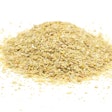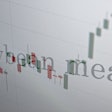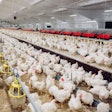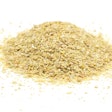
Every day, I receive more nutrition-related newsletters than I have time to read. I usually skim through them until I find something that really interests me. What really annoys me is the flood of news about all these new ingredients and technologies – insects, bacteria from thin air, proteins isolated from this and that, or the next software code that will solve all our problems with precision.
Yes, there is an abundance of money going around for all these startups, which have hitched their wagon very nicely to the climate-change flavor of the decade, but is that all we have to talk about? I don’t mind all these novel efforts, and I wish them good luck. But I also care about more pressing things that affect my work today, and these are not given the attention they deserve as they affect my ability to stay in business tomorrow.
Cereal prices are going up and down and nobody pays much attention to the No. 1 cost driver of every feed formula: energy. The same is true for phosphorus, and even the phytase suppliers who should be holding parties right now prefer to be rather silent. And, what about the ongoing controversy about feeding free amino acids versus wholesome proteins? Why is there no one to take a stance and give us some real answers?
Right, what about me? I have been blogging and writing since 1988 and I focus almost entirely on applied nutrition, but I am just one nutritionist. And I have an agenda as I am self-employed and not a professor or an extension service professional. In contrast, I see more and more qualified people avoiding taking a stance on something they truly believe in (or not) – and I am talking about people who have the right credentials to do so. Is this another sign of modern times where silence is golden?
We are left with information material that would otherwise be on the last page of an otherwise authoritative magazine. Yes, I am talking about the time back then when paper was the rule and getting published was an honor. Perhaps we can blame the internet, but that is not true. A good part of this state of affairs – in my totally biased opinion – is the tight embrace between academia and the industry, which started as a win-win situation and ended up in the state it is today.

















